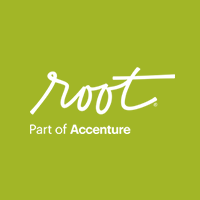At a time when nearly every aspect of healthcare is undergoing rapid, expansive change, for providers like UC Health, the desire to innovate and strengthen the patient and family experience is at the very heart of it all. Yet, to say the path to achieve it is complicated is by far an understatement. UC Health knew it was time for a different approach that would drive change more consistently and quickly across their system. Like many organizations, they invested significant time and resources in navigating what they aptly coined the “healthcare maze”, to bring their vision for a patient-centered future to life. Also, like many organizations, getting that transformation to take hold throughout their culture and across their system presented many challenges and even caused a few false starts.
An 8-step strategic change process was the formula UC Health needed to drive change successfully. To begin, they underwent a significant effort to ensure alignment among senior leaders and board members. The end result was a common vision for the patient experience and a clear strategy to bring it to life, supported by distinct, well-defined initiatives.

To get UC Health’s people on board with this strategy, the organization leveraged two customized Strategic Learning Map® modules to tell the story of today’s healthcare maze and the journey they would take together to achieve a patient-centered culture. With their mix of visual metaphor and small-group dialogue, these Strategic Learning Map® experiences immersed their people in a conversation about change and allowed them to clearly understand and buy into the why, what, and how of the transformation.
With the top leadership and individual contributors aligned on the transformation, one last part of the solution was critical for achieving success –investing in their managers. UC Health recognized that while they could spend months in the boardroom crafting and aligning on exactly the right patient-centered strategy and supporting initiatives, ultimately all of that work comes to life on the front line. They knew they needed to do everything possible to support the execution of their strategy. That meant recognizing that their managers were a huge, untapped asset – vital to driving and sustaining change. When it comes to change initiatives, managers are in the unique position to either be an exceptional accelerant or a significant choke-point. Most organizations, however, neither recognize nor act on this reality. They simply fail to see what it takes to connect managers to strategy execution.
For UC Health, connecting managers to strategy execution meant they had to first equip them with the skills necessary to lead their people through change. Simply understanding the patient-centered strategy for themselves was not enough. Leaders needed the know-how to engage and inspire their teams to act on it. They needed the ability to build strong working relationships, coach and develop the team, set clear goals and expectations, and celebrate successes along the way that would continue to motivate their teams. While leaders throughout the UC Health system excelled at patient care and were focused on quality outcomes, they never had the opportunity to develop these true, foundational leadership skills. To fill that void, UC Health leveraged a 2-day manager development program. With its simple and actionable framework, it provided the right mix of tools, practice, and experience to prime UC Health managers with the right skills to successfully lead their teams through the change.
UC Health’s implementation of this kind of manager development program was truly progressive. Taking caregivers offline for two days of leadership skills training is often why many providers and healthcare systems have not invested in developing managers’ core leadership skills. The price, in terms of logistics, disruption, and lost productivity, is often seen as too much to manage. But, tired of unsatisfactory efforts to kick-start their patient experience approach, UC Health was ready to think differently about implementation. Rather than be paralyzed by the disruption, they embraced it, recognizing that transformation necessitates some disruption to the day-to-day work.
With the belief that delivering a consistent patient and family experience requires a consistent approach to leading, UC Health committed to put 600 leaders at all levels, from physicians to nurse managers to night shift supervisors, through the Manager Development program. In a bold move to speed up the implementation, they scheduled up to 100 leaders a week for the program, sometimes on Fridays and Saturdays. They encouraged and rewarded leaders by ensuring that their time investment counted for continued education credits. The program quickly caught fire, with leaders saying this was “not a cultural transformation program, rather a leadership transformation that will help change our culture” – exactly what UC Health needed to instill a patient-centered mindset across the system. Additional sessions were quickly added to support 300 next-level leaders interested in honing their leadership practice to be better equipped to lead change at UC Health.
Senior leader support has been a major part of the widespread success of this effort. Senior leader sponsors come to each session and address the group at midday, sending a powerful message that the organization is invested in their success and is counting on them to help drive change to create a patient-centered future. Senior leaders have attended the program themselves as a true sign that they are serious and dedicated. With this support, managers feel “this is it… it’s not a one and done, flavor of the month experience. UC Health is making a commitment to improving the knowledge, skills, confidence, and abilities of our leaders” at a very critical time.
Looking for a different way to improve the patient experience in your organization? Keep these three strategies in mind:
- Don’t Ignore Your Managers: Managers have the ability to be strategy activators, accelerating change throughout your culture. Prime them with the leadership skills they need to be successful. Now is the time to invest in them.
- Embrace Disruption: Transformation requires a lot of bold thinking and a bit of risk-taking. Don’t fear disruption – embrace it. A willingness to work through the logistics of taking leaders offline to invest in building their skill set may be the difference between a slow-building and inconsistent shift in patient experience and real change you can see and feel in the span of just a few months.
- Ensure Senior Leader Support: Make sure your managers are clear that investment in their skills is directly connected to the organization’s need to drive the patient experience forward. Senior leaders need to send the message that this is not simply a flavor of the month approach. Whether they participate in manager development themselves or check-in with participants during sessions, their presence elevates the need and significance of this effort.
By Alison Lazenby and Tracey Nawrocki






